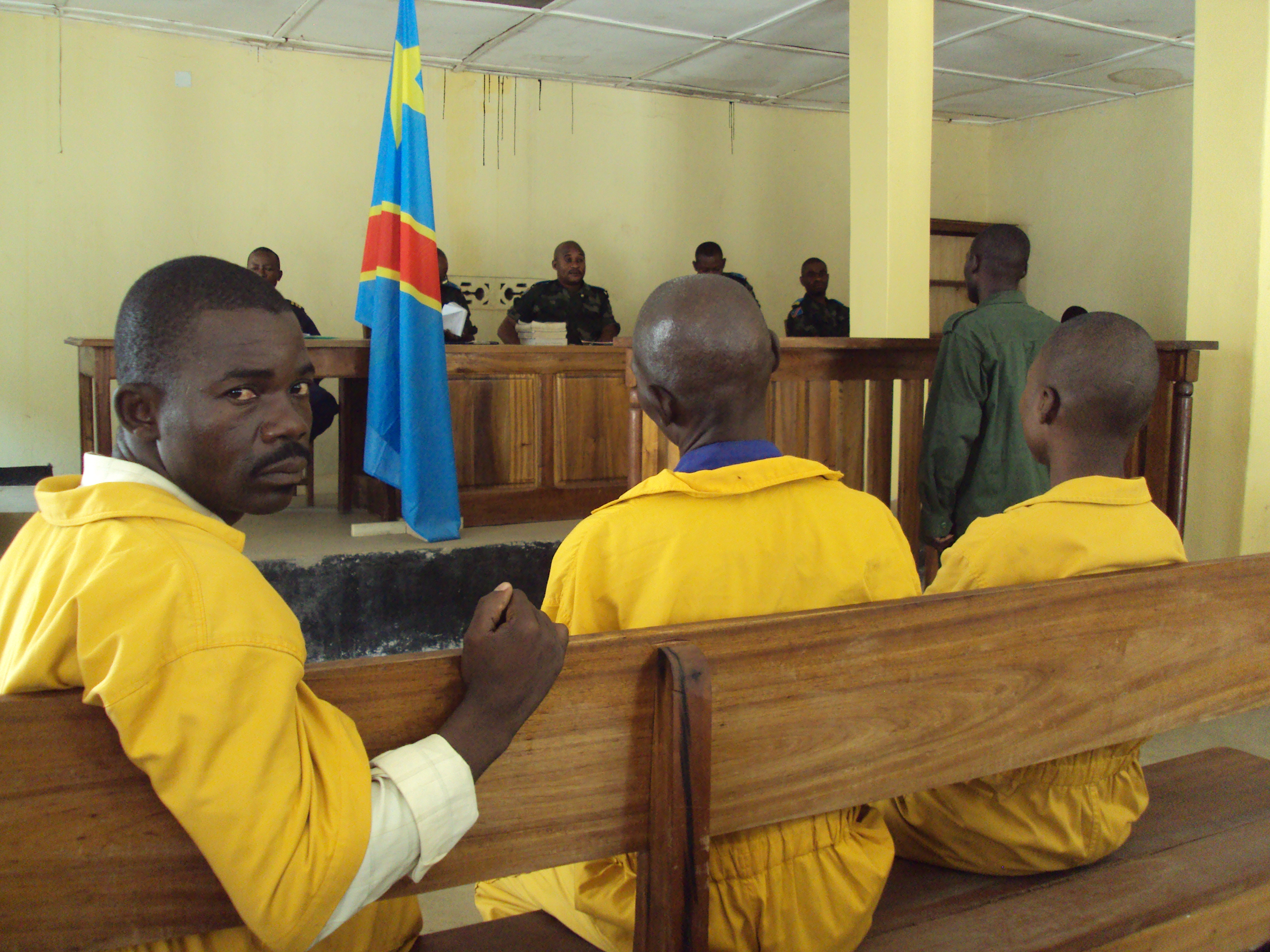
Executive Summary
The lack of accountability for war crimes including the murder of civilians, rape, plunder, extortion, and enslavement is one of the key obstacles to creating an environment for peace, and development in eastern Congo. The painful facts of the past must be brought to light, and reconciliation must occur in order to for the country to move forward. Concurrent with truth-telling exercises, the worst perpetrators must be brought to justice. Sustainable peace will not take root in Congo while perpetrators remain free. In the country’s turbulent east, the Congolese army must establish itself as the protector of civilians, not their predator.
Yet, the issue of military justice reform and transitional justice in Congo is complex and politically divisive. There must be political will from the Congolese government and from within the FARDC. There must be willingness on the part of the international community to apply pressure as well as assist and support local efforts for a sustained period of time. Finally, there must be participation and equitable input from local communities, civil society, and traditional leaders. Failure to follow this path will condemn the region to live out the famous saying from playwright Eugene O’Neil, “There is no present or future, only the past, happening over and over again, now.”[i]
This paper addresses the challenges of justice reform in Congo and explores potential solutions for the future. The ideas set forth are gleaned from discussions with many individuals on the front lines in this battle against impunity.
Efforts at reform are underway and there have been recent signs of success. Recently established mobile courts in eastern Congo supported by the government, the FARDC, and international partners have detained, tried, and convicted military officers of rape and war crimes in North Kivu for the first time. There is an initiative within the Congolese government to establish specialized mixed courts — composed of both Congolese and international lawyers, prosecutors, and judges — with the jurisdiction and capacity to try international war crimes and crimes against humanity in the eastern portion of the country between the years 1994 to 2003 as well as more recent and ongoing cases. These courts would also help to build capacity more generally within the Congolese judicial system. In addition, the FARDC, UN, and Congolese civil society groups are working to establish and implement guidelines and mechanisms for civilian protection that would allow individuals and communities to testify in cases without fear of retribution. These crucial developments highlight the holistic interface between meaningful judicial and security sector reform.
There has never been a systematic attempt to address the issue of impunity within the Congolese justice system. Rather a series of ad hoc initiatives aimed at capacity building or external intervention to try human rights abuses. While both are necessary, they must be part of a larger comprehensive agenda that focuses on several other sectors including governance, security, and resource management. Given the current state of the justice system in Congo, those Congolese champions who wish to enact reform require international partnership at the onset–otherwise, the obstacles are too great, and resources too few. If the international community engages in sustained and coordinated partnership with local civil society groups, Congolese legal professionals, and other stakeholder to create long term strategies for reform, success is possible in time.
In the short-term, the Enough Project proposes five recommendations for the U.S. Government and other donor nations to bolster justice reform in Congo and aid in the fight against impunity.
- Use a multi-pronged approach of state-level conditionality-based pressure and civil society grassroots support to ensure that the Specialized Mixed Courts law is adopted and implemented.
- Work with local implementing partners to expand the prosecutorial jurisdiction of mobile courts to include economic crimes and the pillaging of natural resources; and put in place long-term capacity building strategies to enhance residual justice mechanisms that house the mobile courts.
- Pressure the Congolese and Rwandan governments for the immediate arrest of General Bosco Ntaganda.
- Coordinate with the United Nations, ICC, and the Congolese Government to expand international and national judicial focus to pillaging of property and natural resources as well as economic war crimes and begin issuing indictments on the worst offenders.
- Publically support Congolese groups and individuals working for the establishment of Truth and Reconciliation Commissions, or TRCs, to be created in conjunction with the Specialized Mixed Courts to allow communities affected by conflict to use traditional methods towards conflict resolution at the grassroots level.
There are many within the Congolese government who continue to adopt the mantra “justice is the enemy of peace,” and fear that attempts to prosecute the worst offenders will spark renewed conflict. Many former rebel leaders from the first and second Congolese wars hold high-level positions within the government today and could be implicated in war crimes themselves, therefore making them hesitant to support real reform and the linking of justice reform with broader efforts toward accountable leadership and security sector reform in the Congo. Finally, the protection of individuals who would engage in truth and reconciliation efforts or testify as witnesses in criminal cases is currently far from guaranteed—without civilian protection, justice reform initiatives will be hollow at best.
While eschewing justice in favor of short-term stability may have some political support, to establish sustainable peace the Congolese must tackle their painful history of violence. Without bringing those responsible for the worst crimes to justice and addressing ongoing grievances and hatreds arising from years of conflict, violence is likely to continue. To cultivate peace, justice must be served.

